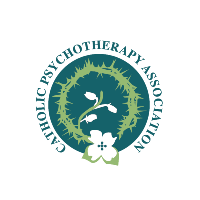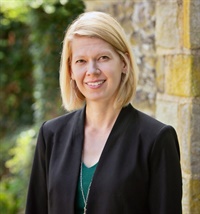
- 904.420.0536
Target Audience: Psychologists, Counselors, Social Workers, Marriage and Family Therapists, Pastoral Ministers
Course Level: Advanced
Learning Objectives:
Eye movement desensitization and reprocessing (EMDR) therapy is an evidence-based treatment approach for posttraumatic stress disorder and other issues proceeding from adverse and unprocessed or maladaptively processed experience. Culturally-sensitive adaptations of EMDR therapy have been reported to increase the comfort-level for clients and positive treatment outcomes in recent years; similarly, active and attuned adaptations of psychotherapy to fit the religious beliefs of the client have been shown to be highly effective.
Several approaches to inner healing prayer as an avenue to spiritual and psychological healing have gained both popularity and credibility among the Catholic population. The approach offered by the John Paul II Healing Center has been previously illustrated to correspond closely to the steps and elements of the standard protocol of EMDR therapy.
This workshop will offer a conceptual overview of EMDR therapy and inner healing prayer, followed by a discussion of elements, phases, and interventions within EMDR therapy that lend themselves to integration of language and elements of inner healing prayer. Please note: Content included in this workshop presumes that participants have completed an accredited EMDR therapy training. While participants who are not yet trained in EMDR may benefit from the material presented, the presenters advise completion of said training before the contents of this workshop can be ethically employed.
The Catholic Psychotherapy Association is approved by the American Psychological Association to sponsor continuing education for psychologists. The Catholic Psychotherapy Association maintains responsibility for this program and its content.
This program does not qualify for NBCC credits
| EMDR in a Catholic Context (12.93 MB) | Available after Purchase | ||

Jennifer Madere is a LPC-Supervisor, EMDRIA Approved Consultant and Trainer and Certified Sex Addiction Therapist in private practice. She is a founding partner of Intuitus Group in Cedar Park, Texas. She has accompanied child and adult survivors of trauma on their journey of healing and recovery in psychotherapy since 2003.
Jennifer supervises graduate and post-graduate clinicians and consults and offers training and consultation related to treatment of complex trauma, pathological dissociation, and EMDR therapy. Jennifer also trains fellow clinicians in the ethical integration of faith and spirituality in clinical practice. Jennifer is a past President of the Catholic Psychotherapy Association, a Fellow of the International Society for the Study of Trauma and Dissociation (ISSTD) and co-teaches the EMDR therapy training offered by ISSTD.
In addition to numerous professional presentations in local, national, and international conferences, Jennifer is the published author of several scholarly works on the topics of consultation and screening, assessment, and differential diagnosis for dissociative disorders.
Since 2015, Jennifer has collaborated with D. Michael Coy, LICSW, and Paul Dell, PhD to update the interpretive manual and associated documents for the Multidimensional Inventory of Dissociation (MID) and make the MID documents and training accessible to clinicians and researchers world-wide (see www.mid-assessment.com).

Elizabeth Heuertz is a member of Intuitus Group Independent Professionals, located in Cedar Park, Texas. She is a Licensed Clinical Professional Counselor (LCPC) in Kansas and a Licensed Professional Counselor (LPC) in Texas. She obtained her Master's degree in Clinical Mental Health Counseling from Franciscan University of Steubenville in 2015. Elizabeth completed training in Eye Movement Desensitization and Reprocessing (EMDR) therapy in 2017 and has pursued advanced training in EMDR for treating trauma, addiction, and attachment-related issues. She has presented and written on the integration of clients’ personal faith in the treatment of trauma-related symptoms. Elizabeth specializes in the integration of Catholic anthropology, healing prayer, ego state therapy, and EMDR in the treatment of trauma, dissociation, and relational wounds. She primarily works with Catholic clients, including diaconal candidates, seminarians, women religious, and consecrated virgins. Elizabeth provides telehealth services for clients located in Kansas or Texas.